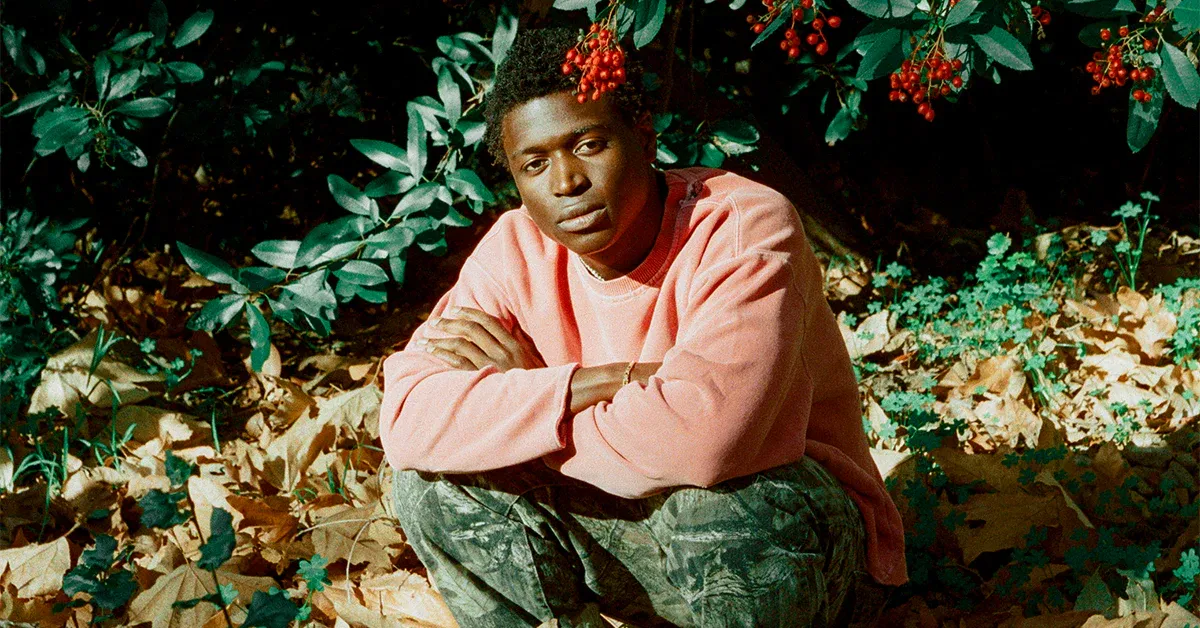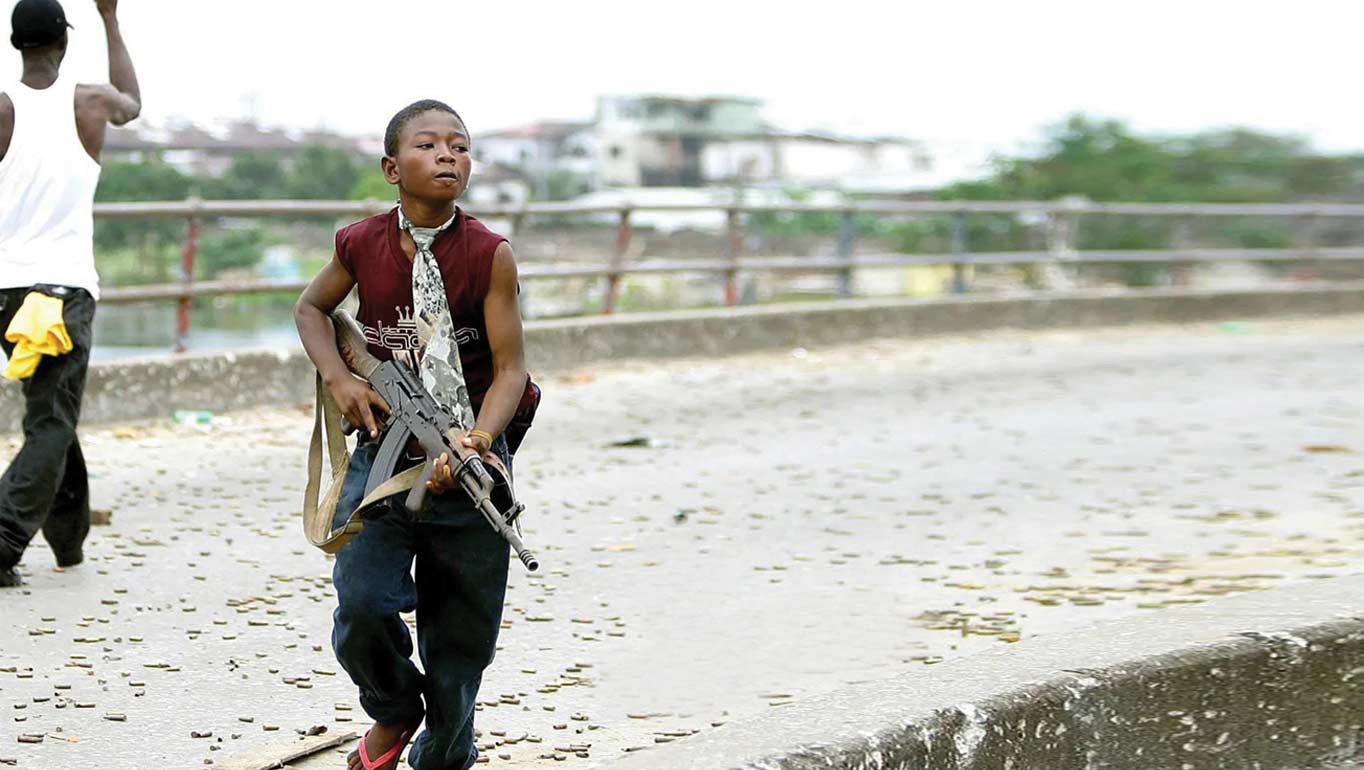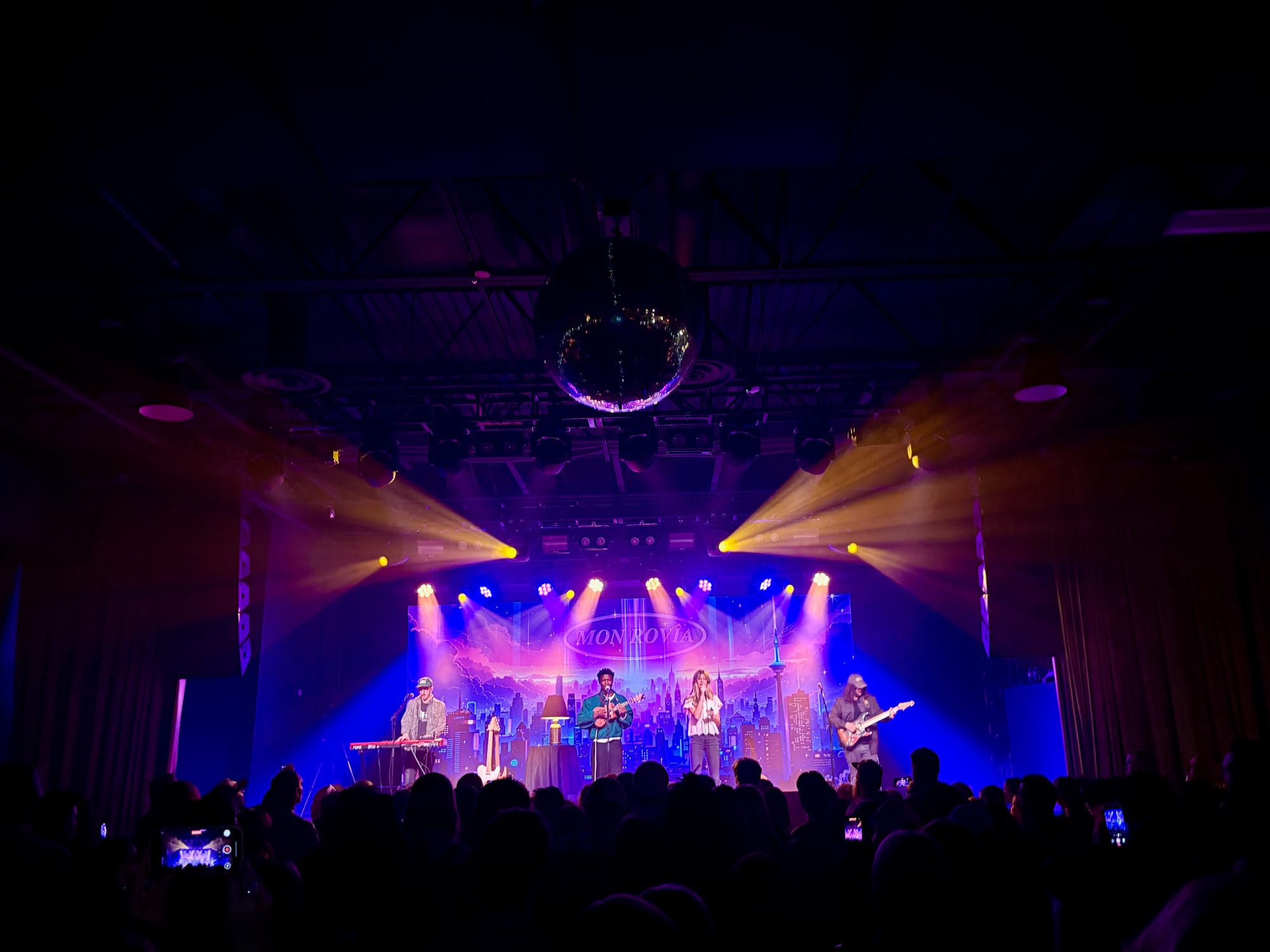I kept looking at Mon Rovîa’s logo during his concert, trying to make the words into an anagram for “Moon River.” It didn’t quite work, but it should have, if that makes any sense. The much-beloved Chattanooga-by-way-of-Memphis music festival appears to be on indefinite hiatus, but if ever there was an artist whose whole vibe was matched to Moon River’s rootsy, folksy aesthetic, it’s Mon Rovîa. Maybe someday.

But for tonight, we’re not under the stars in Coolidge Park, we’re in Barrelhouse Ballroom, and it’s not early a warm September evening, it’s a frigid mid-January night. Mon Rovîa, the stage name of Janjay Lowe, has been nurturing his audience for years through an uncommonly vulnerable and creative social media presence. When he released “Big Love Ahead” last year, arguably his best known song, he did so with an Instagram post that read, “This song was meant to encourage you to not only hope for good each day, but to accept it when it comes. Regardless of where you are at, It was meant for you.” You get the sense that he means it.
The show is sold out and the place is packed early. Misty makes the observation that the crowd is uncharacteristically diverse for a Chattanooga show, and she’s right: the audience is mostly white, but not exclusively, and we see toddlers, college kids, elder millennials, and more than a few senior citizens. This is the first night of what Mon Rovîa has dubbed the “Heal With Others” tour. As audience members, its understood that we too have an assignment.
Mon Rovîa is more than Janjay’s pseudonym – it’s also a place. Monrovia is the largest city and capital of Liberia, where Janjay was born. He was adopted by a local family when he was about five years old, and he tells us a story about visiting it later in life. It was and is a dangerous place by his recounting, besieged by civil war and horrifically violent in a routine way that most people is this crowd cannot understand. Janjay’s story includes a moment where he is held a rifle point by a child whose been conscripted into one side of the conflict and plied with drugs. Janjay escaped; there’s no telling what happened to the child.

Narrative is a big part of Mon Rovîa’s whole deal: where he’s come from and why, where he’s headed and why, what he wants us to know about that journey. In a literal sense, he’s headed to North Carolina after this show, Alabama and points east after that. The appreciative audience gathered here seems intent on trying to give him as much fuel for the tour as we can, perhaps with the wish that he’ll return to us, return home, when he’s ready.
More stories follow during the show. Friends lost to cancer. Heartbreak. Mistakes made and mistakes made to us. These things are specific to Janjay and therefore universal to all of us. The heaviness of Our Fraught Political Moment hangs over everyone’s heads. Earlier today, the world we learn that David Lynch died. “One day the sadness will end,” the director once said, “but I don't think today's the day.” Indeed.
Mon Rovîa music is undeniably melodic but intense and ethereal all at once – a sound that’s meant to be absorbed subcutaneously into your blood over time. Each composition is a deceptively simple and repetitive acoustic guitar figure that holds layers of atmospherics: keys, bass, electric guitar, other voices. Mon Rovîa doesn’t so much write songs as he builds whole cathedrals out of gossamer and invites us in. Tonally these songs have something in common with lullabies, but that’s not quite right. A lullaby literally means to “lull, near.” Mon Rovîa means to draw us near, but to awaken and enliven us, not lull.
The beginning of this tour coincides with the release of Act 4: Atonement, the final installment of a four-EP cycle he’s called “The Mon Rovîa Folk Saga.” Most of this evening’s set is drawn from these records, including another should-be hit, “Crooked the Road,” co-written by his friend and bandmate Sam Hudgens.
“25 years, I know you've been unraveling. Tell me, why did you run run past the dogs and the horses?
Now you find yourself here, past the do's and don'ts of your choices.”
Mon Rovîa has described his influences as “Basically Bon Iver, Vampire Weekend, Fleet Foxes, Boy n Bear, Passion Pit. I really liked those kinds of vibes,” and of course it’s possible to hear all of that: the gentleness which is its own kind of strength, the warmth which is its own kind of weight. The longer he goes, the more he actually reminds me of Johnny Cash. JR was no stranger to human brokenness and life’s casual cruelty. They were his muses and as such he found it not only possible but vital to sit with them without flinching. How else could they teach him how to write and sing?
Janjay – a refugee whose arrival in this country was born from escape – knows something of this too. We may travel far from home. We may change our names. We may learn new things. We'll never escape being alive, however. In his music, Mon Rovîa seems to channel a certain genius so effortlessly, but if you listen, you know how much of a price he’s actually paid.

The encore ends with “Big Love Ahead.”
“I saw you smile for the first time, and I hope it lasts a while now.
If you fall, I'll catch you.”
Churchgoers would call this a benediction — an acknowledgment that something has taken place, a promise of return, a blessing. Calling this Heal With Others is sincere but unnecessary. Mon Rovîa knows we cannot heal alone and we can't we be with others without healing. The trick is in learning what healing we all have yet to do.